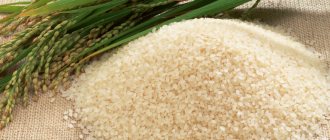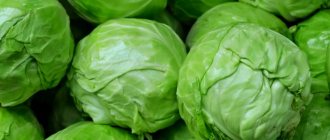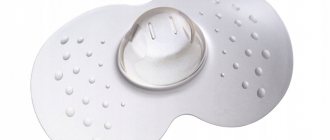The history of marshmallows
They started making sweets in Rus' in ancient times. True, it was originally called marshmallow. The recipe was very simple: honey was added to sweet applesauce, and after boiling, the marshmallows were dried in the sun. Confectioners from France modified the Russian marshmallow recipe by including whipped egg whites in the recipe. Thanks to the new ingredient, the sweetness acquired a white color.
Calorie content of marshmallows
There are approximately 300 kcal per 100 g of product, so it is undesirable to eat a large amount of this sweetness if you are overweight. However, the calorie content of this dessert is not so high compared to cakes, pastries and sweets. For example, one chocolate candy contains more than 500 kcal, and a custard cake contains more than 550.
High-quality marshmallows can be preferred to other delicacies during breastfeeding, given that they are based on fruit puree.

Why are sweets prohibited during breastfeeding?
Many women during breastfeeding notice that they constantly want to eat something sweet. This phenomenon has a medical basis: breastfeeding requires a lot of energy, and the easiest way to restore lost calories is with fast carbohydrates. Everything is aggravated by the fact that after a sharp jump in glucose upwards, it immediately begins to fall. This means that the desire to eat flour or sweets will appear again after a short period.
Young mothers should be aware that sweets while breastfeeding can negatively affect the baby's health. They contain substances that can cause allergies in babies.
Stabilizers, thickeners, flavors, and dyes are added to purchased sweets. All components of the dessert pass into breast milk during feeding, and this causes colic, abdominal pain, and increased gas formation in the baby.
On a note! Excessive consumption of sweets during breastfeeding also negatively affects the health of the young mother. The risk of obesity, caries, gastrointestinal problems increases, and metabolism slows down.
When breastfeeding, the best sweets are marshmallows and marshmallows. They are the most harmless in their composition, but you should not use them in unlimited quantities.
Making marshmallows
To prepare such a dessert, no special culinary skills are required. The sweet is prepared from the most affordable products. You will need half a kilogram of sour apples, egg white, a glass of sugar, agar-agar or gelatin.
Agar-agar is soaked in water. Cored apples are baked and pureed. A syrup is prepared from seventy grams of water and sugar. Agar-agar is heated until dissolved. Beat the egg white, gradually add to the puree, pour in the hot syrup. Add agar-agar, whisking constantly. The foam mass is placed in a container with cold water, whipped until thick and completely cooled. Place the product in small portions on a silicone board and put it in the refrigerator to harden. It is advisable to let the dessert sit for a day.
We recommend reading: Pumpkin during breastfeeding
Reasonable consumption of the right sweets will allow mom to regain strength, feel a surge of energy, and receive positive emotions.
Is it possible to eat marshmallows during breastfeeding?
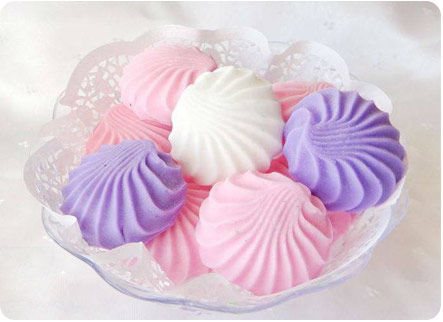
But is it possible to have marshmallows while breastfeeding? The answer is yes, but you should eat it 2-3 times a week, one, maximum two, pieces. Breastfeeding mothers are wondering if marshmallows can be consumed during breastfeeding in the first month. Doctors advise abstaining from sweets for 2-3 months after giving birth. The baby’s gastrointestinal tract has not yet fully formed, so from the first days you need to adhere to the correct diet:
- choose hypoallergenic products;
- prepare dishes by steaming, boiling, baking;
- exclude flour, canned, sweet, fatty foods;
- replace sweets with dairy products, bananas, baked green apples and pears.
The benefits of marshmallows
The health of a nursing mother and baby depends on a woman’s proper and varied diet. But a woman’s well-being is also influenced by her state of mind. A complete refusal of sweets can trigger depression, which many women are already susceptible to after the birth of a child. Do not deny yourself the pleasure and pamper yourself with harmless treats!
What are the benefits of marshmallows:
- Natural pectin helps cleanse the body of heavy metals and salts;
- Has a beneficial effect on digestion;
- Microelements have a positive effect on the condition of bones and improve the functioning of the nervous system;
- Marshmallows contain a lot of dietary fiber necessary for proper bowel function.

Marshmallow has many beneficial properties
The nutritional value
100 grams of delicacy contains:
- Proteins – 0.8 g
- Fats – 0.1 g
- Carbohydrates – 79.8 g
- Dietary fiber – 1 g
- Water – 17 g.
Nutritional value of 100 grams – 326 kcal. Depending on the diet of a nursing mother, her lifestyle, and individual characteristics, the daily calorie content should be from 2700 to 3000 kcal.
Harm and contraindications
During breastfeeding, marshmallows can be harmful to health if the mother consumes them in unlimited quantities. You also need to carefully read the information about the composition of the product. If it contains dyes, preservatives, stabilizers and other harmful substances, this product cannot be used.
There are a number of contraindications in which sweets should be excluded during the feeding period:
- Diabetes;
- Obesity;
- Caries.
Important! If after birth the baby is diagnosed with an allergic reaction to cow protein, the mother should not eat marshmallows.

If you are overweight, you should stop eating marshmallows.
Rules for using marshmallows during lactation
Strict restrictions in the diet of a nursing mother are associated with a possible reaction to the product. Marshmallows during breastfeeding must be consumed strictly following certain principles, carefully introducing sweetness into the diet.
For the first time, half a treat is considered acceptable. For two days it is necessary to carefully monitor the baby’s condition. In the absence of a negative reaction, the amount is gradually increased.
You should be careful about the composition of the product. The presence of various additives, dyes, flavors, preservatives, can cause unpleasant symptoms in a baby.
Rules for nursing mothers
Marshmallows are allowed when breastfeeding, but a woman needs to learn important rules so as not to harm the health of her baby:
- The first months are the most crucial period during breastfeeding, so it is better not to consume marshmallows and other sweets.
- The sweetness should be introduced very slowly, starting with a small piece. It is better to do this in the morning so that you can observe the baby’s reaction throughout the day. If the baby does not have an allergic reaction, after a few days the portion of sweets can be increased.
- Sweets do not replace nutritious food. A woman's diet during breastfeeding should be balanced, enriched with vitamins and microelements, because all important substances for the development and growth of the child come with mother's milk.
- Preference should be given to homemade sweets made from natural ingredients.
Allowed portion
Closer to three months, a nursing woman can begin to consume sweets such as marmalade and marshmallows. The question immediately arises: how much marshmallows can you eat while breastfeeding? It’s better to start with a quarter of one piece, increasing the portion to half. If there are no reactions in the baby, a woman can eat one piece a couple of times a week.
Harm of marshmallows during breastfeeding
Despite the benefits of marshmallows for the body and its unique composition, during breastfeeding it can cause some harm to the bodies of the woman and baby.
The harm of marshmallows lies in the following indicators:
- Allergic reactions. The confectionery product contains egg white, which causes an allergic reaction in mother and child.
- Availability of chemical components. Most often on store shelves there is marshmallow, which contains dyes, flavors, flavor enhancers and other chemical components. To get the maximum benefit from dessert, you should consume homemade sweets.
- The occurrence of itching and burning in the vagina of a young mother. After the birth of the baby, the woman’s body gradually recovers. The vaginal microflora also returns to normal. Eating sweets in large quantities can provoke an exacerbation of thrush.

How to choose the right marshmallow?
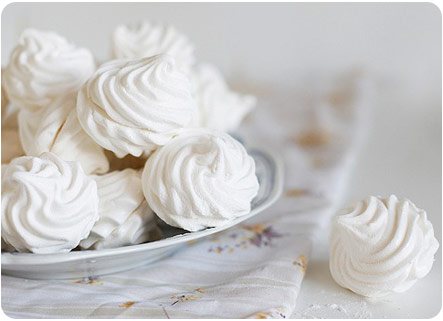
Choose marshmallows without food coloring
It is important that the product is exactly white. Multi-colored treats (pink, yellow, red) contain preservatives, dyes and other harmful additives. Before pregnancy, many women prefer marshmallows in dark or white chocolate, with various additives: nuts, waffles, sprinkles, chocolate chips. Chocolate and nuts should be avoided while breastfeeding. But a product with jam or marmalade is not prohibited. Jam or preserves should be made from dark-colored berries: blackcurrants, blackberries, blueberries. Red berries can cause allergies in infants.
When choosing a treat, you need to carefully study the information on the label. The composition should not contain chemical components, and expiration dates should be in order. Pay attention to the packaging: it must be sealed, without damage or cuts.
Don't buy a treat at too low a price. Good marshmallows with a short shelf life, made from natural products, cannot be cheap.
Benefit
This product is considered one of the light and airy desserts. It contains almost no fat, so the delicacy is consumed without fear of spoiling the figure. Marshmallows during breastfeeding give a woman positive emotions, improve vision and normalize stool.
The main beneficial properties of marshmallows:
- Strengthens bones and improves vision. The product contains vitamin B2, which is necessary for the synthesis of certain hormones and red blood cells. The vitamin also protects the retina from the negative effects of ultraviolet rays, and also strengthens the central nervous system;

- An effective antioxidant. The composition includes pectin, which cleanses blood vessels from cholesterol and also increases the body’s protective functions;
- Improved brain activity. The composition includes glucose, necessary for normal brain function. During the first months of a child’s life, a young mother’s head is spinning with new tasks and responsibilities. In addition, dessert can be a healthy snack between meals or after feeding a child;
- Normalization of digestion. It is recommended that a nursing mother consume marshmallows to improve digestion, normalize stool and remove toxins. These properties are provided thanks to agar-agar, which is part of the product;
- Improving the taste of milk. When a woman consumes sweets, the taste of milk acquires a pleasant sweetish taste.
Pros and cons of sweets
The benefits of eating sweets in moderation include the benefits listed in the previous sections. And most importantly, they bring mom pleasure.
Cons of sweets:
- The risk of developing allergic reactions in infants [3].
- Sweet foods do not help reduce excess weight, especially that gained during pregnancy.
- Deterioration in the condition of mother's teeth.
- If the product contains a lot of organic acids (sour apples), they will aggravate the mother’s peptic ulcers.
- Against the background of hormonal changes after childbirth, excessive consumption of sweets increases the risk of developing diabetes and thrush [1].
- Mass industrial products can be harmful. They contain: additives, thickeners, food coloring, emulsifiers, flavorings.


